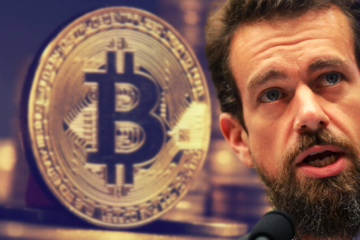There Will Be No New Bitcoin Man
To scholars and activists left and right, human nature is the enemy. If it were not for human nature, the environmentalists believe, the forests and fields and natural wonders of the world would be pristine and perfect. If it were not for human nature, believe the behavioral economists, we would make better choices – save more, eat better, gamble less, and not get tricked by framing effects that marketers and retailers so expertly wield against us. If it were not for human nature, some philosophers argue, we would assign the same value to all human beings rather than singling out those who look like us, those who think like us, and those we happen to live close to.
Human nature, including the desire for self-preservation and favoring the well-being of one’s loved ones, was also the enemy of socialism, an enemy that its writers and political leaders of the 20th century explicitly tried to conquer. In 1969, the cultural scholar Theodore Hsi-en Chen penned a remarkably clear and refreshingly critical outline of the Chinese Communist Party’s attempt to revamp society: The New Socialist Man. The socialist transformation of humanity aimed to establish a new society and a new way of life. A new society presupposes new men with new minds, new ideas, new emotions, and new attitudes. Before a new way of life can prevail, the old way of life must be abolished. While the new generation is being molded according to the Communist ideology, older people with old minds and hearts must be remolded. The making and remaking of new men therefore becomes a fundamental task of the Communist revolution.
Before “the abolition of the old and establishment of the new” can be fully achieved, the mistaken mindsets and natural urges of heretics and everyday people must be countered. To make their utopia viable, they literally had to change the constitution of man, replace the old bourgeoisie values with those needed in the new socialist world.
My bitcoin friends (and the “bros” of bitcoin Twitter whom Financial Times’ writers like Izabella Kaminska and Jemima Kelly love to ridicule) suffer from the same utopian illusions.
A disturbing trend among true believers is to quip that “Bitcoin fixes this,” almost regardless of what the problem may be. While partly facetious, the kernel of truth in those statements is that, like Chen so well captured for the socialist revolution to succeed, current financial and monetary ills are the overhang from an outdated and harmful monetary system. A system we must change, and cultural values and social traits we must replace. Bring on the bitcoin revolution – and see society atone for its monetary sins!
Bring on The New Bitcoin Man
All that’s wrong with the current world, we are told, comes from the false behavior of the masses, not inherent or natural desires themselves. Had we only had a better monetary regime, the reasoning goes – a “harder” money – all these debt-carrying people would behave more frugally, all this short-termism of kick-the-can-down-the-road politicians would no longer be, all these cash-strapped businesses could easily endure the financial hibernation imposed on most economies during the corona crisis of 2020.
One aspect that seems to go with the conspiratorial nature of the crypto crowd is to believe that many people’s current values are wrong; not just randomly wrong or evolutionarily unfit, but nefariously instilled by some malignant overlords. Falling into the trap of socialists and postmodernists and others rejecting human nature, the bitcoiners believe that if we just had a better monetary regime, fallen men would see the errors of their fiat ways and reestablish some long-lost monetary Eden. A bitcoin-based world would embody different social norms coming from the improvements of society that a “better money” would usher in.
In the New Brave World that we will remake from the money-printing ashes, we will borrow less, spend less, diversify more, be more resilient to all kinds of events, and look to the next centuries like the rest of us look at the weekend. (The evangelical creed and the underdog-populism here is wonderful).
Today’s pre-bitcoinized folk borrow for cars, for houses, for college, and for that despicable consumption. The New Bitcoin Man wouldn’t: he (yes, regrettably he) would stack his sats, earn and hide his bitcoin fair and square, and let bitcoin’s inevitable wealth creation make him rich (actually wealth transfer, not creation).
Today’s people consume too much. The New Bitcoin Man wouldn’t: he would foresee bitcoin’s inevitably exponential growth and appropriately value future benefits over fancy dinners, sports cars, and designer clothes that he unfathomably desires in the present. Today’s people have way too high time preference – the economist’s clunky way of saying how much they value gratification in the present over the future – which Saifedean Ammous, author of The Bitcoin Standard, explicitly blames on fiat currencies and central banks (he confusingly seems to believe that they’re the same thing). Sound money, writes Ammous “allows people to think about the long term and to save and invest more for the future.”
Is that so? Never mind that entrepreneurs and investors during the last century of fiat have built and created the most astonishing companies, often toiling away for decades at far from lavish lifestyles in order to see their dream come true and their work pay off decades down the road. Never mind that the incomparably poorer past saw huge segments of society living “paycheck-to-paycheck” in subsistence farming, relegated to starvation whenever harvests were bad.
Never mind that real interest rates, reflecting society’s time preference, have trended down for 500 years (ironically enough, that was held as a sign of a flourishing civilization by the very Austrians that many bitcoiners only read selectively). This, writes the Bank of England researcher Paul Schmelzing,
has persisted throughout the historical gold, silver, mixed bullion, and fiat monetary regimes, is visible across various asset classes, and long preceded the emergence of modern central banks.
That’s very awkward if you believe that different monetary regimes greatly impact a society’s financial culture and economic welfare.
Never mind that debt is often quite beneficial for agents in the future or assets they currently can’t liquidate, that college pays off handsomely (and so borrowing the money up-front makes sense), that houses root people in their communities and that (until the last few decade’s explosive price increases) well preserved their real value.
There’s also something strange in presuming that financially illiterate people who, by unfortunate circumstances or carelessness or poor discipline, take out payday loans to taper them over until the next paycheck (sometimes at hundreds of percent) only because Jay Powell announced vast monetary stimulus.
Another topic that bitcoiners often ridicule is the price stability mandate of central banks and the “sticky prices” assumption that drive outcomes in many macroeconomic models. In contrast, the New Bitcoin Man embraces price uncertainty and stoically carries the financial risks associated with rents, mortgage payments, and supermarket prices that could change as often and as rapidly as stock markets.
Maybe wage inflexibility and money illusion will be entirely different in a world populated by New Bitcoin Men, but there seems to be a lot of non-monetary reasons why workers and employers and landlords desire rigidity in the pricing of the goods and services they contract over. So desirable, in fact, that these contracts operate for years at a time.
I’m not trying to defend a situation where only 61% of Americans say they can cover an unexpected $400 expense without resorting to loans (or selling assets), but to note that the blame for that is probably not found in a particular monetary regime.
Following Occam’s razor, it seems much more believable that people want nice things in the present – which psychology tells us – and that they prefer price stability in large parts of their personal finances – about which economists have frequently informed us – than believe that the monetary world we inherited somehow duped everyone into false consciousness against our better interests.
I have yet to meet a bitcoiner who comprehensively wants to overthrow the old sublunary traits of us fallen men – they tend to believe in bottom-up social processes. But I posit that all of them believe that the glorious future of humanity under a bitcoin standard involves some stark change in one or more of these traits; the New Bitcoin Man must overcome some alleged deficiencies in our financial behavior.
That’s not believable. We live with many of these so-called shortcomings – ignorance, present bias, expansive financial services, pleasure-seeking consumerism, price stability – because we want to and because our psychology and biology implores us to. Not, as bitcoin bros would have you believe, because of fiat money regimes.
Circumventing them and keeping them in check is great and admirable. Forcibly abolishing them, not so much. Chen wrote that “The Communists have a long way to go before they can achieve their goal of new men with new minds and new hearts to suit their blueprint of socialist society.”
So do the bitcoiners.
source: capitalismmagazine.com


